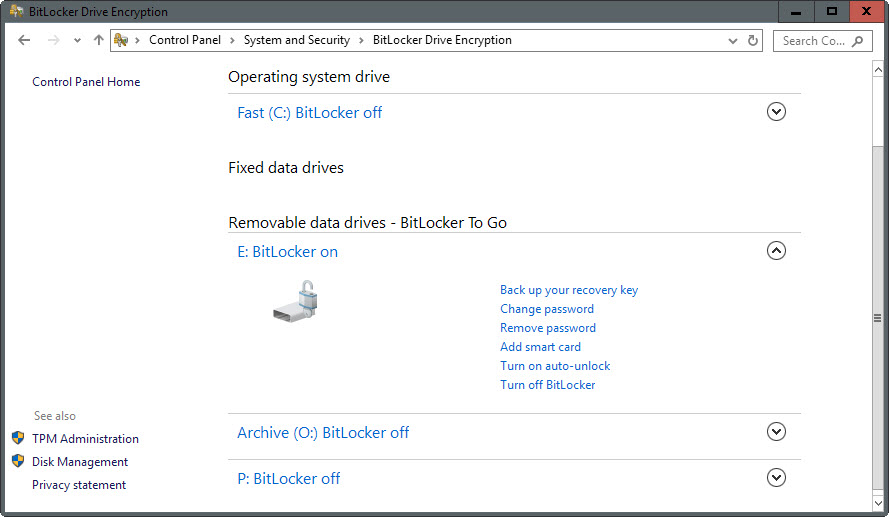Microsoft: Windows 10 Bitlocker is slower, but also better
If you encrypt the hard drive of a computer running Windows 7, and then on the same computer running Windows 10, you will notice that the encryption process is faster on Windows 7.
Bitlocker is a built-in disk encryption program that you can use to encrypt data so that it cannot be accessed by third-parties. If you don't encrypt your hard drive, anyone can access the data on it even if the PC is not on.
With Bitlocker and other encryption software, this is prevented.
Reasons why Bitlocker is slower on Windows 10

In Why Bitlocker takes longer to complete the encryption in Windows 10 as compared to Windows 7, Microsoft Support Escalation Engineer Ritesh Sinha describes why Bitlocker encryption is slower on Windows 10.
The answer is a bit technical, but it boils down to improvements made to the encryption process itself, and changes that went into Bitlocker that make it somewhat of a different product than the version for Windows 7.
The big change to the encryption process itself is a new conversion mechanism that Microsoft calls Encrypt-On-Write. It ensures that all writes to disk are encrypted as soon as Bitlocker is enabled on the operating system. This works for internal drives only at the moment. Microsoft does not use the new conversion mechanism for removable drives for backwards compatibility reasons.
This change is important for data security, as you could not place important data on a drive on older versions of Windows before the Bitlocker conversion process reached 100% due to the fact that the data may not have been encrypted immediately.
The second reason for conversions to take longer on Windows 10 is that Microsoft configured the Bitlocker process to run less aggressively. This improves system performance while the encryption process is ongoing and results in a longer conversion process.
Microsoft notes that other improvements went into Bitlocker on Windows 10. These have no impact on the encryption process but may be beneficial in certain situations.
This includes support for encrypted hard drives, HDD and SSD hybrid disks, new means of administrating Bitlocker, new FIPS-compliance, or Bitlocker Network Unlock.
Closing Words
I have not seen any report on how longer the Bitlocker encryption process takes on Windows 10 compared to Windows 7.
This is obviously not that much of a problem if this is a one-time operation. So, home users may notice the extra time it takes but it is a one-time operation.
The extra time it takes to encrypt drives using Bitlocker on Windows 10 may be an issue however for system administrators who run the operation regularly on company devices.
Now You: Better data security but slower encryption, a good trade off? What's your opinion on this?
This article was first seen on ComTek's "TekBits" Technology News

- Log in to post comments